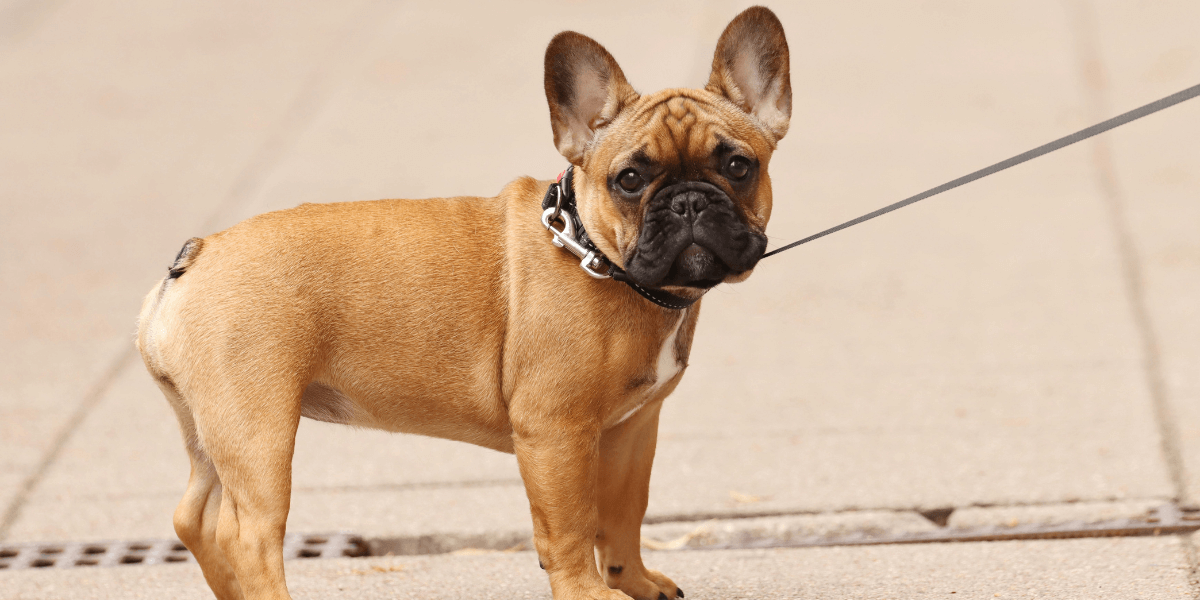Introduction
French Bulldog Puppy Training is key to a happy, well-behaved dog
Learn how!
-
Early training builds good habits and prevents future behavioral problems
-
French Bulldogs are charming but can be challenging. Understand their traits for success
-
Consistency, positive reinforcement, and patience are vital for effective training
-
Avoid common training mistakes to ensure a smooth experience for your puppy
-
Proper training enhances behavior, social skills, and overall well-being
-
Grooming and training intersect, impacting your puppy’s comfort and confidence
-
Get started with practical tips for successful French Bulldog puppy training
1. Understanding Your French Bulldog Puppy
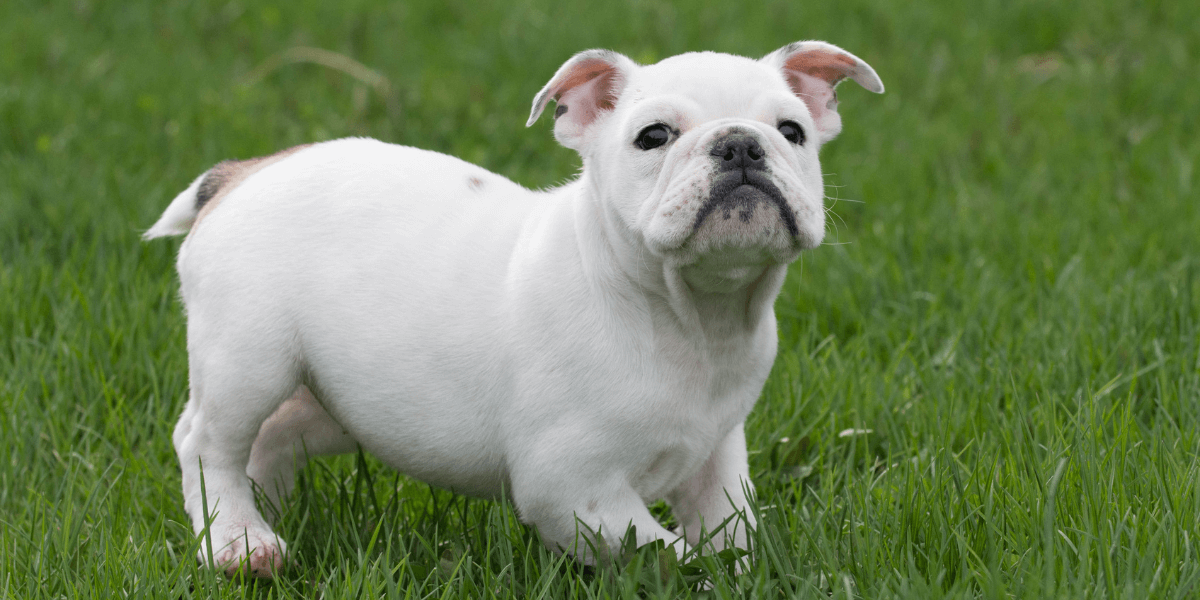
Before diving into training, it’s crucial to understand your dog’s unique traits:
- Temperament: French Bulldogs are known for their affectionate and stubborn nature
- Energy Levels: They have moderate energy levels, making short, frequent training sessions ideal
- Intelligence: While they are smart, their independent streak may require extra patience
- Socialization: French Bulldogs thrive with positive, early socialization experiences
- Adaptability: They adjust well to various living situations, from apartments to houses
Understanding these characteristics will help tailor your training approach to your puppy
2. Essential Puppy Training Basics
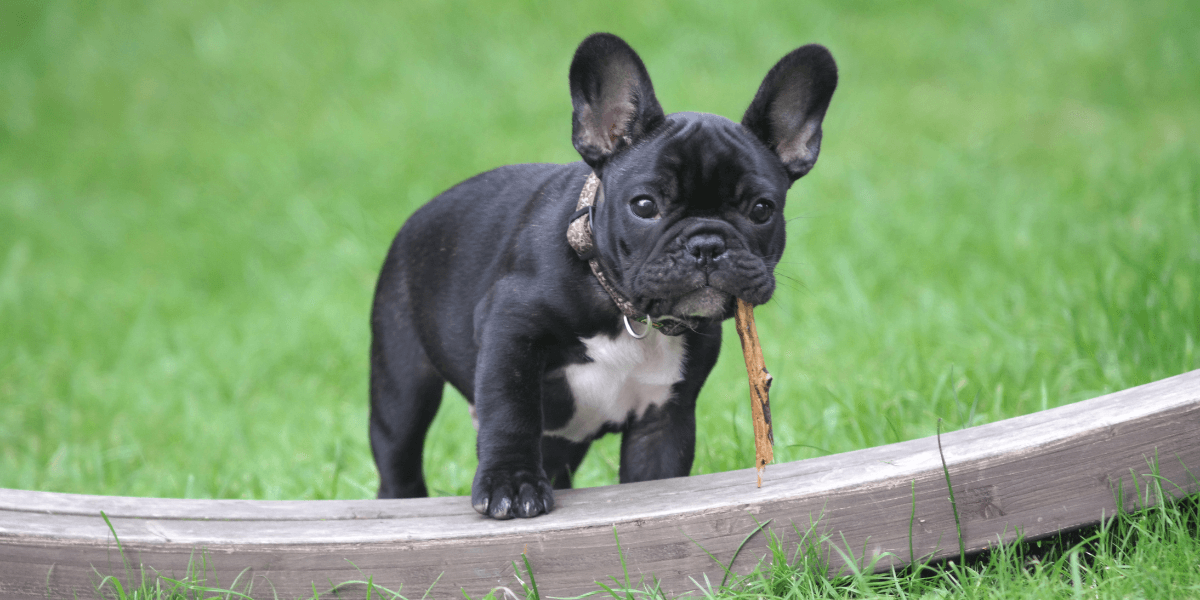
Training your French Bulldog starts with the basics:
- Consistency: Use the same commands and routines to avoid confusing your puppy
- Positive Reinforcement: Reward good behavior with treats, praise, and affection
- Patience: Training takes time; avoid frustration and remain calm
- Short Sessions: Keep training sessions brief to maintain your puppy's attention
- Clear Commands: Use simple, clear commands to help your puppy understand expectations
- Socialization: Expose your puppy to different people, pets, and environments early on
3. Crate Training Your French Bulldog
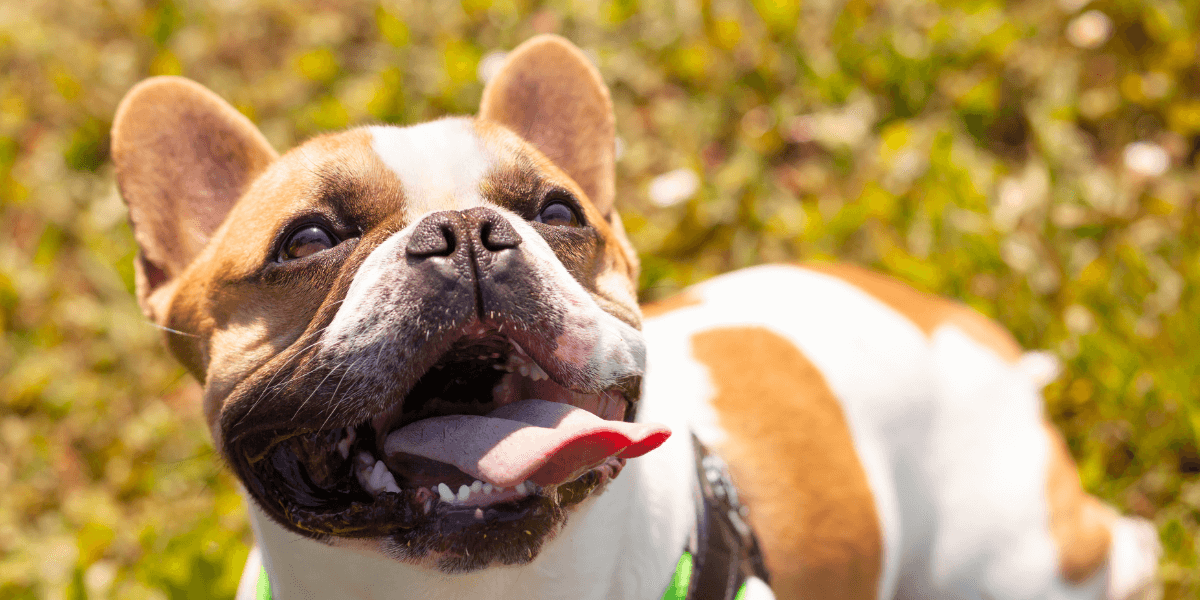
Crate training is an essential part of housebreaking:
- Choosing the Right Crate: Select a crate that’s comfortable and appropriately sized for your puppy
- Introducing the Crate: Make the crate a positive space by placing toys and treats inside
- Gradual Introduction: Start with short periods and gradually increase the time your puppy spends in the crate
- Crate Placement: Place the crate in a quiet, safe area where your puppy can relax
- Routine Schedule: Establish a regular schedule for crate time to create consistency
Proper crate training helps your French Bulldog feel secure and prevents accidents in the house
4. Housebreaking Your French Bulldog
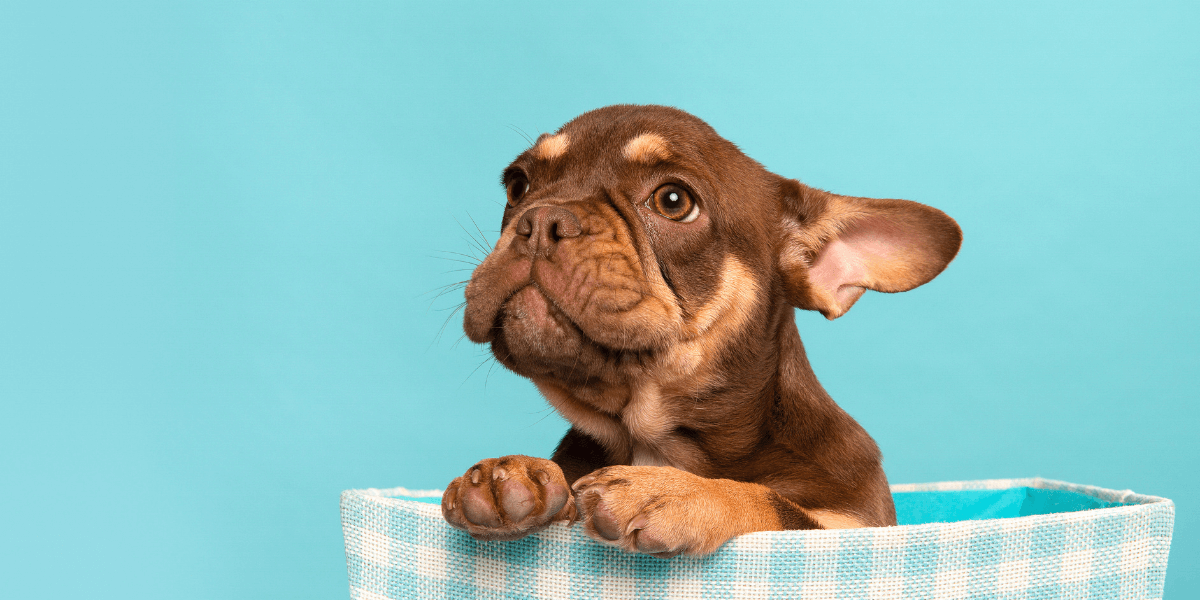
Housebreaking requires patience and persistence:
- Establish a Routine: Take your puppy outside frequently, especially after eating or drinking
- Reward System: Praise and reward your puppy immediately after they go outside
- Accident Management: Clean accidents thoroughly to remove odors and prevent repeat incidents
- Consistent Schedule: Stick to a regular feeding and potty schedule to help regulate their needs
- Monitor Behavior: Watch for signs that your puppy needs to go outside, like sniffing or circling
Learn how to keep your pup healthy with our guide on Prevention and Care for valuable tips.
5. Socialization: Why It Matters
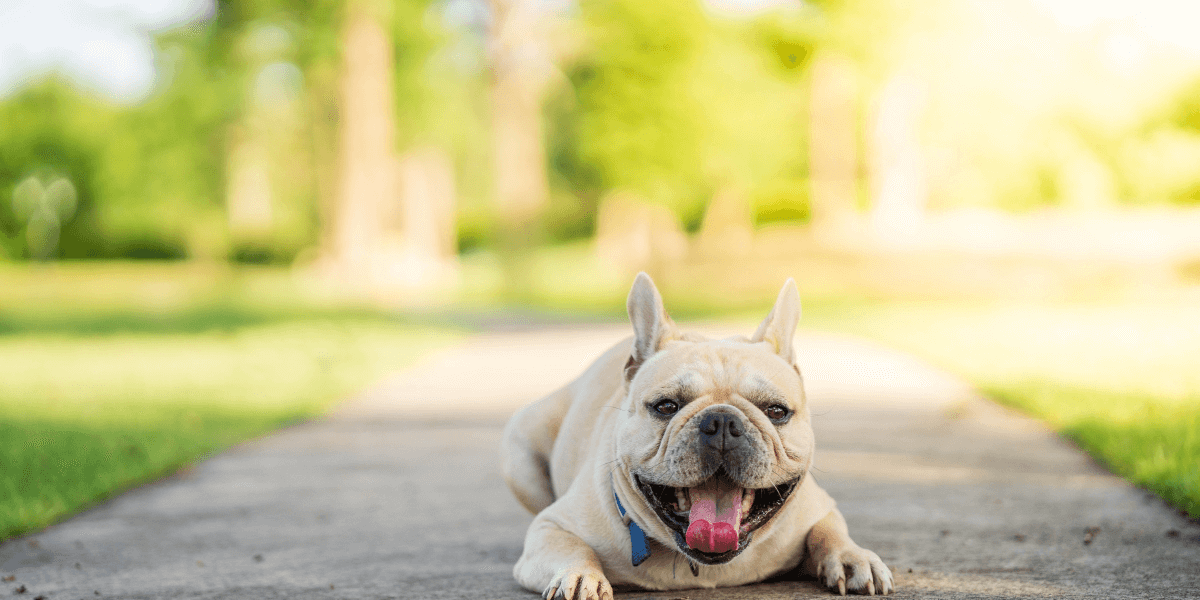
Socialization is crucial for a well-rounded puppy:
- Exposure to Various Environments: Introduce your French Bulldog to different people, pets, and situations
- Positive Experiences: Ensure these interactions are positive to build your puppy’s confidence
- Training Classes: Consider enrolling in puppy training classes for structured socialization
- Gradual Introductions: Slowly expose your puppy to new experiences to avoid overwhelming them
- Safe Spaces: Provide a safe space where your puppy can retreat if they feel overwhelmed
- Consistent Interaction: Regularly interact with different environments to maintain your puppy's social skills
Early socialization helps prevent behavioral issues and fosters a well-adjusted adult dog.
6. Basic Commands Training
Teaching basic commands lays the foundation for more advanced training:
- Sit: Use treats to guide your puppy into a sitting position and reward them
- Stay: Gradually increase the duration your puppy stays in position before rewarding
- Come: Call your puppy using a cheerful voice and reward them when they come to you
- Down: Encourage your puppy to lie down using treats, then reward them for staying down
- Leave It: Teach your puppy to ignore distractions by rewarding them for leaving items alone
- Heel: Train your puppy to walk beside you by using treats and praise for staying close
These commands are essential for your puppy’s safety and behavior management
7. Addressing Common Behavioral Issues
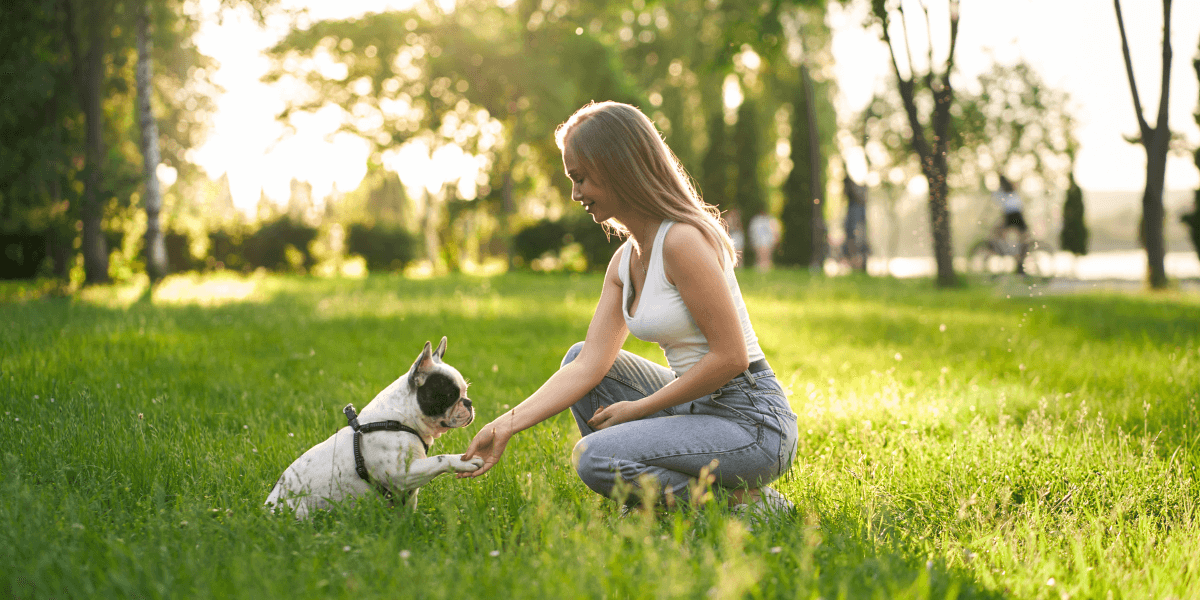
French Bulldogs may exhibit some common behavioral issues:
- Barking: Address excessive barking with consistent commands and redirection
- Chewing: Provide appropriate chew toys and redirect chewing behavior to them
- Separation Anxiety: Gradually increase alone time and provide engaging toys to keep your puppy occupied
- Jumping Up: Teach your puppy to keep all paws on the ground by rewarding them for calm behavior
Understanding these issues early can prevent them from becoming major problems.
FAQs
1. What is the best age to start French Bulldog Puppy Training?
- Start training as early as 8 weeks old to set a strong foundation
2. How long should each training session be?
- Keep sessions short, around 5-10 minutes, to keep your puppy engaged
3. What are some key commands to teach a French Bulldog puppy?
- Focus on basic commands like sit, stay, come, and leave it
4. How often should I train my French Bulldog puppy?
- Train daily to reinforce learning and build good habits
5. What training methods work best for French Bulldogs?
- Use positive reinforcement with treats and praise for effective results
6. Can I use training classes for my French Bulldog Puppy Training?
- Yes, classes can provide structure and socialization opportunities
7. How can I address behavioral issues during training?
- Consistency and patience are key. Consult a professional if needed
Conclusion
- Consistency in training builds strong habits and understanding
- Positive reinforcement encourages desired behaviors effectively
- Patience and persistence are essential for successful training
- Early socialization helps your puppy adjust well to different environments
- Seek professional help if training challenges arise
- Maintain a loving approach to make French Bulldog Puppy Training enjoyable
- Keep learning and adapting your training methods as your puppy grows
Your feedback and experiences can help others on their training journey!
References
- How To Train A French Bulldog Puppy – The Ultimate Guide
- French Bulldog Training Tutorial: Do These from the First Days
- Choosing the Best Orthopedic Dog Bed
- French Bulldog Puppy Training
- Orthopedic Dog Beds for Large Dogs: A Comprehensive Guide
Happy training!
Thank you!


